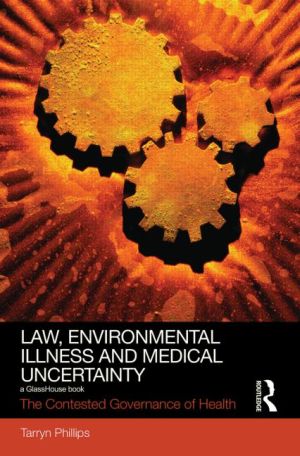
Law, Environmental Illness and Medical Uncertainty addresses what happens in the institutions of law and medicine during periods of scientific uncertainty. The book paints an ethnographic portrait of the medico-legal system and its struggle to deal with a globally contested, environmental illness. More than twenty years after multiple chemical sensitivity, or MCS, was first labelled, a world-wide debate is still playing out in the medico-scientific community and in the courts over its cause. While a minority of experts believe the condition is genuine and caused by toxic exposure, the standard medical belief in most countries is that MCS is psychosomatic, and related to paranoia about chemicals. The claims of the chemically sensitive continue to be met with scepticism and dismissal, particularly when they enter the courtroom. Drawing on three years of fieldwork and interviews in Australia, this work brings the MCS controversy to life by focusing on workers compensation lawsuits over the condition. In these cases, we meet chemically sensitive workers, supportive and sceptical doctors, employers, governments, insurance companies and environmental activists who collide in a battle over the legitimacy of the condition. More than merely local disputes over workers' compensation, these cases reflect and influence global struggles over knowledge about the ecological impact of industry, the fallibility of science, and the efficacy of medicine and the law as umpires in scientific controversies. Law, Environmental Illness and Medical Uncertainty thus provides a nuanced ethnographic analysis of law, medicine and their interaction in the contested governance of health.